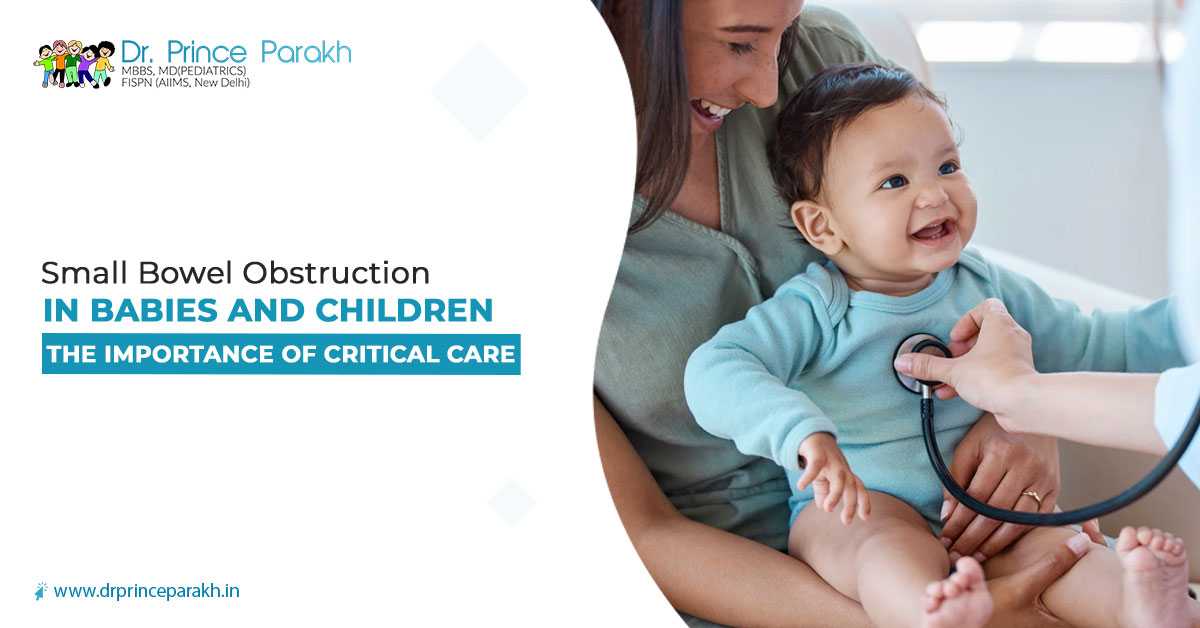Small bowel obstruction (SBO) is a medical emergency in which the small intestine becomes partly or fully clogged.The most frequent surgical emergency in neonates is blockages of the intestinal tract. Although it is more frequently linked to adults, infants, and kids can still be impacted.
Early diagnosis and treatment are essential, and in many situations, critical care is vital to providingoptimal results. For critical care in Siliguri for children, visit the leading pediatric hospital in town.
A small bowel obstruction is a birth defect that means the small intestine of the fetus is partially or completely blocked. The condition arises from the improper growth of the small intestine during fetal development. The obstruction can happen anywhere in your kids’ small intestine.When the baby's intestines are blocked, they are unable to function normally.
Small Bowel Obstruction: What is it?
We all know that food digestion and nutrient absorption take place in the small intestine. So, when it gets blocked, this will stop content from moving normally through the digestive tract (mechanically or functionally).
The following are the common causes of SBO in children:
- Infants are more often affected with intussusception, a disorder in which one portion of the intestine slips into another.
- Congenital abnormalities include malrotation with volvulus, causing intestines to be positioned incorrectly. It may be responsible for blockage and twisting.
- Adhesions mean the narrowing of the intestines caused by scar tissue from prior procedures.
- Hernias leading to weak spots in the abdominal wall allow parts of the intestine to push through.
- Newborns with cystic fibrosis frequently have meconium ileus, a condition in which obstruction is caused by a thicker meconium.
Knowing the Symptoms
In infants and children, small bowel obstruction symptoms might be mild or serious. Important signs and symptoms to look out for are:
- Vomiting that is frequently green (bilious) might be a more significant blockage.
- Bloating and distension of the abdomen.
- Constipation or lack of gas and stools.
- Sluggishness, irritations, or uncontrollable tears.
- Peristalsis, or the abdomen's wave-like motions, is visible.
- Signs of shock or dehydration in more severe situations.
Parents and other caregivers must be alert to physical symptoms and behavioral changes in newborns because our little ones are unable to express their emotions.
The location of small intestinal blockages in the small intestine, along with the level of blockage, determines its type. The main types are:
The majority of small bowel blockages are partial blockages brought on by stenosis, an abnormal narrowing of the gut.
Comprehensive obstruction (atresia) is the term for a condition in which the small bowel is closed off or obstructed. Sometimes, the obstruction is separated from the remainder of the gut.
Critical Care for Small Bowel Obstruction in Babies and Children
Once SBO is diagnosed, the treatment depends on the cause and how complex the condition is. Critical care may be necessary to stabilize yourlittle one and prepare for surgery or manage its complications.
Routine ultrasounds will be performed during your pregnancy to check fetal growth, amniotic fluid volume, and the risk of issues, including premature labour.
For your health and the protection of your baby, amnioreduction (reduction of the amniotic fluid) or an early birth may be necessary if polyhydramnios develops.
Surgery is necessary to resolve a small intestinal blockage in newborns to restore normal bowel function. Here, surgery is done in the first few days after delivery. It is wise to choose a hospital with a neonatal critical care facility.
A pediatric surgeon may remove an abnormal portion and stitch the two ends of the intestine together if the defect is a stricture. A stoma, or temporary abdominal incision, may be made by your pediatricsurgeon to remove a portion of the small intestine from the body in more critical situations.
To ensure healthy intestinal function, as well as optimal growth and weight gain, babies and children with small intestine blockage need routine follow-ups. See one of the best pediatricians for critical care in Siliguri City. Reach out to your child specialist for accurate health evaluation and care.







